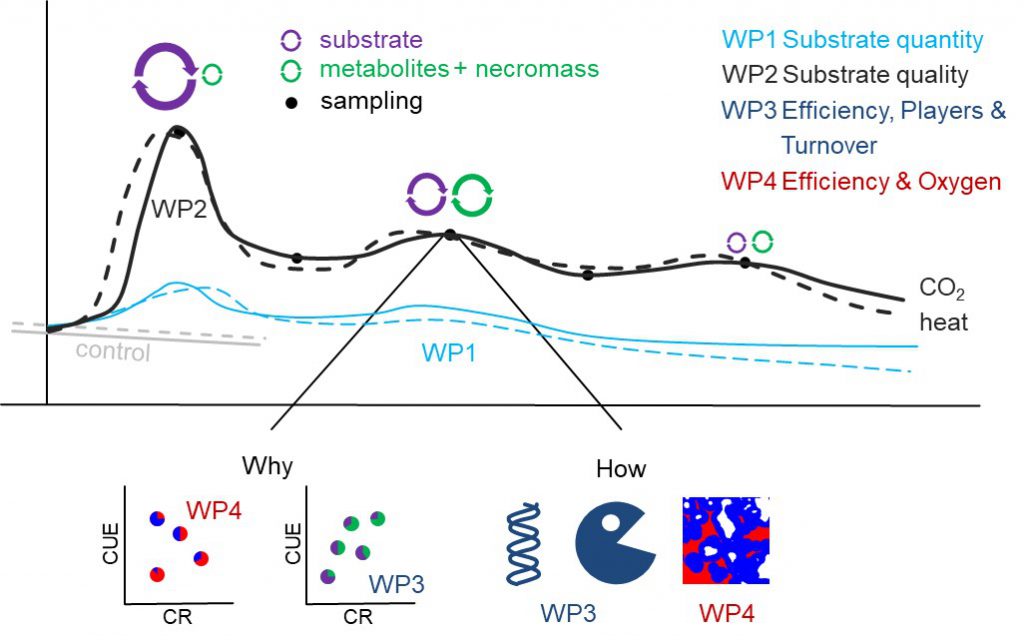Heat dissipation and matter turnover in the course of microbial succession constrained by substrate and oxygen availability

Current challenge to increase sequestration of soil carbon (C) requires understanding the processes of C losses during microbial decomposition of diverse organic compounds. A tense competition between microbial groups for available soil organics results in a trade off between fast but less efficient or slow but more efficient metabolism of substrate. The proposed project Microheat considers that transformation of organic substrates in soil occurs in the course of multi-stage microbial succession through a sequence of decomposition stages. The duration, amplitude and dominating taxa of each successional stage as well as an efficiency of carbon utilization are dependent on substrate quality and amount and are restricted by oxygen availability. The methodological novelty and challenge of Microheat, is in estimation of the anaerobic soil volume fraction via application of X-ray CT to study the effect of oxygen diffusion constraints on C and energy use efficiency (CUE and EUE). The peculiarity of Microheat is in its conceptual view linking matter (CO2) and energy (heat) losses to microbial growth and to the range of enzyme-mediated reactions related to various stages of substrate decomposition. The Microheat project aims to relate an efficiency of microbial metabolism with heat and C losses in course of microbial succession during decomposition of organic compounds in soil. This will be done by a combination of kinetic approaches to relate matter and energy losses with 1) changes in dominating microbial populations, 2) microbial functional traits, and 3) turnover time of carbon sources. As a result, a variable CUE as a function of independently determined microbial traits will be suggested for carbon models considering dynamically changing fraction of anaerobic soil volume. The Microheat project will thus make a promising contribution to elucidating regulatory mechanisms of energy and matter turnover.
Link to English scientific abstract
Link to German scientific abstract